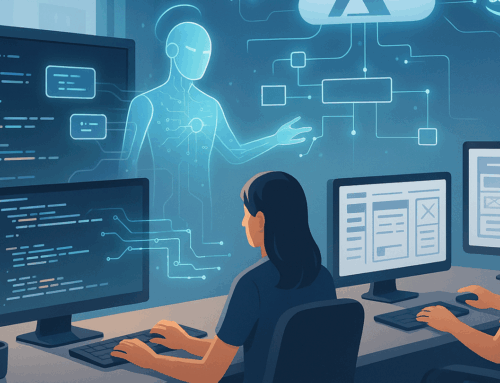Hotels and restaurants have long used loyalty programs to build customer relationships. But the way they use them is changing as new technology and marketing trends transform the game. Here’s a look at some of the shifts in hospitality loyalty programs that we’re seeing and what you can do to ensure your hotel or restaurant stays on top of things.
What it means: Loyalty program members no longer want generic rewards and offers—they want experiences that are tailored to their individual preferences. In an age when brands like Amazon and Netflix know so much about users’ interests, consumers are holding other companies to those standards; they expect businesses to understand their likes and dislikes, too.
To get it right, hotels and restaurants need to collect data on customers’ preferences and behavior, then use that information to reward them with unique experiences or offers that speak directly to their tastes.
Hospitality Loyalty Mobile Apps
According to a recent survey, more than half of consumers are willing to switch brands for better loyalty rewards. It’s clear that consumers want loyalty programs, but what about the businesses that offer them? As it turns out, companies also see significant benefits from their loyalty programs.
A study from Deloitte shows that more than 80% of businesses with loyalty programs believe that they have increased customer engagement. Over 50% said that their program had increased lead generation and sales growth.
Mobile apps are also the best way to support existing members and drive engagement.
Members can connect their loyalty card details through the app, which allows them to gain points, earn rewards, and track their progress from anywhere at any time. This connectivity is critical for creating an engaging experience for members.
For new members, apps are also one of the most effective ways to share information about promotions and offers and communicate with members directly through push notifications. Apps can be designed with integrations that allow custom messaging based on a member’s location or purchase history.
The first step in creating this kind of hospitality loyalty is building an app that lets your customers know who you are, what you do, and why they should care. Your app should deliver personalized experiences that invite users to engage with you on a deeper level. This can be done through push notifications and geo-fenced messages that include details about new promotions or upcoming events relevant to their interests.
The second step is making sure your app is mobile-first and responsive across all devices. Customers today expect information at their fingertips 24/7—and if they encounter anything less than that, they’re likely to find another business to take care of their needs instead. If your website isn’t mobile-friendly or doesn’t have an app, then it’s time to make some changes!
Gamification
Gamification is a marketing trend that puts a fun, game-like twist on any product or service. It’s a strategy that uses game mechanics to get people more engaged with your brand and encourage them to use your product more frequently.
There are plenty of use cases for gamification in hospitality, especially when it comes to loyalty programs. When you’re dealing with an industry as big as hospitality, where the stakes for customers can be high and there can be so much competition, it’s important to create experiences that keep customers coming back for more.
For example, a hotel loyalty program might reward customers with points if they check-in using the app (or book online using their app), but those same points could also be redeemed for room upgrades and unique amenities like free Wi-Fi.
When you create a gamified experience that encompasses the whole guest experience—from check-in through checkout—it gives customers something to look forward to each time they visit the hotel and helps them feel like they’re getting more out of their stay than they are by just checking in and leaving again.
According to the National Restaurant Association, most top hospitality brands have tripled their gamification budgets in the last year. With the rapid expansion of mobile technology and new apps that allow customers to play for free, gamification has never been more popular.
Guests Are Looking for a Frictionless Experience
Guests are looking for a frictionless experience, and hotels respond to that demand.
In this era of constant upheaval and rapid change, hotels must find ways to retain their guests’ loyalty. One way is through technology, which can enable more thoughtful decisions and provide a convenient, easier way to check-in.
The landscape of technology in the hospitality industry is changing rapidly, from digital keys to smart menus and room layouts.
As guests travel more and expect more from the experience they receive at a hotel, hotels are responding with new digital technologies that make it easier than ever before to check-in, browse amenities like Wi-Fi or parking space availability, and more amenities like fitness centers and pools, as well as get directions to the hotel on a mobile app.
Automated Messaging: Reducing the Friction Between a Guest and Its Hospitality Loyalty Program
Automated messaging is an emerging hospitality loyalty trend that allows hotels and other establishments to remove the friction between guests and their loyalty programs.
When customers sign up for a loyalty program, they are typically asked to provide an email address and phone number. That information can then be used to contact them at a later date. An automated message can include everything from a reminder to follow them on social media to a request that they leave a review of their stay.
Automated messaging allows hotels to improve customer service and increase customer satisfaction significantly. With this technology, guests do not need to remember their loyalty number or spend time searching for it among the dozens of apps on their phones. Instead, they are quickly and easily able to access information about the rewards they have earned and receive updates about new offers and promotions.
Hotels also use automated messaging to send customers reminders when their points expire, or rewards need re-upped. Another widespread use for this technology is sending out marketing messages that remind guests of upcoming events at their hotel or offer specials for those who stay multiple nights in a row during specific dates.
Peer-to-Peer Points Transfer: Allowing Guests to Exchange Reward Points Among Themselves
In recent years, the trend toward peer-to-peer point transfer has been rising within the hospitality industry. While in past years, the concept of this exchange method was considered too much of a risk due to potential security issues, new technologies have emerged that make points transfer within a loyalty program secure and feasible.
This trend is particularly useful for brands that attract guests who often travel with others, allowing those groups or families to pool their points together. Since these guests are likely to be loyal to your brand, this flexibility will encourage them to participate in your rewards program.
Some consumers also respond well to donating their unused points to charity, making it possible for companies that offer this feature to build a positive public image by supporting worthy causes.
Social Media Platforms to Customer Service Tools: Moving From Social Media as a Promotional Tool Only, Into CRM Software, Which Allows the Hotelier to Truly Understand Guests’ Preferences, Build Stronger Relationships and Drive Brand Loyalty
Hospitality brands are starting to understand the value of social media in their loyalty programs. The key is to move from seeing it as a promotional tool and instead use it as a CRM software that allows hoteliers to truly understand guests’ preferences, build stronger relationships and drive brand loyalty.
For example, Marriott Hotels has created “The Social Guest” persona and developed an entire campaign around them. This persona represents someone who uses social media channels to share updates on their travels and experiences with friends.
Because social media is such a powerful way for brands to gain exposure, many hospitality brands have adopted programs like this one that incentivizes guests to share reviews about their brand experience through social media.
In addition to using social media as a marketing tool, hotels are also using it to create more personalized guest experiences by collecting data from social media platforms like Facebook and Twitter into their software platforms.
This allows hotels to use predictive analytics models, which can help them predict how likely someone is going to purchase another stay at the hotel based on previous transaction history or if they will be likely to return as an elite member based on past activity levels (e.g., number of nights spent at other properties).
Location-Based Technology
It may seem paradoxical to discuss hospitality loyalty technology trends. Still, the reality is that the very notion of “hospitality” has undergone a shift in recent years.
Gone are the days when guests would receive such “hospitality” as a doorman or concierge—the human face of a hotel or restaurant. In their place are chatbots or digital assistants that can help book reservations, order room service, and even open curtains remotely. Increasingly, these bots can provide personalized recommendations or suggestions to guests based on their individual preferences.
Take it a step further: What if a hotel could offer personalized recommendations on restaurants, shows, and activities outside of its doors?
With location-based technology and access to guest data, hotels could provide guests with the ultimate customer service:
- Personalized recommendations for the best dining options for their family and friends within a four-block radius.
- Reservations at an upscale wine bar for special occasions.
- Tickets to sold-out sporting events.
Artificial Intelligence and Chatbots
Artificial Intelligence and chatbots are excellent ways to help customers feel like they don’t have to go out of their way to get the information they need. Many travel-related companies are already implementing AI and chatbots to help every step of the journey, from planning a trip to booking accommodations and transportation to locating the best places to eat or offering deals on other attractions.
This can allow users to feel like they’re being taken care of and are getting what they need without asking for it—a significant advantage by improving customer experience.
Customer Self-Service
Today’s traveler wants to be able to check themselves in online, or they want a quick process when they get to the hotel. They also want to take care of their own needs, like ordering room service or checking the status of their bill, without having to call down to the front desk or make another trip through the restaurant.
Loyalty Technology is a Great Way to Bring Your Hotel, Resort, or Restaurant Into the 21st Century
Hospitality loyalty programs are the answer if you’re looking for ways to increase revenue, enhance your guests’ experience, and improve operational efficiency. In addition, having customer data allows you to give your customers what they want and make their experience as personalized as possible. This leads to happier customers and higher revenue for your hotel or restaurant.
Using technology like text messaging and mobile apps makes your loyalty program easy for both staff and guests to use. It’s also an effective way of rewarding guests with points or other incentives when they join the program and continue staying at your property over time—something that may be hard to do without an automated system in place.






